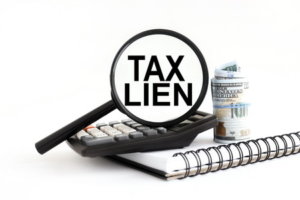Tax Lien & Deed Due Diligence
 Many investors with a self-directed IRA or Solo 401(k) choose to invest in tax liens and tax deeds.
Many investors with a self-directed IRA or Solo 401(k) choose to invest in tax liens and tax deeds.
When done right, tax lien investing can be a great way to achieve diversification within your retirement plan and produce above average returns.
Like most all investments, the key to getting good results is knowledge. The more you know about properties you may wish to bid on, the better you can control the outcomes and produce good results.
Once you have a list of properties you are interested in bidding on, research in the following areas will be beneficial.
County Property Records
Contact the county tax assessor’s office to obtain the property record. This information is more commonly becoming available online, but sometimes you will need to visit the office in person or make a special request for specific property information.
As more local jurisdictions move to digital formats, the depth of information provided is increasing. In addition to basic property information and recent assessed values, you may find data on recent sales, visual information such as plat maps or photos and other helpful tools you can use to evaluate the potential of a parcel.
Perform a Title Search
You may need to manually comb through microfiche in the basement of the county offices or might have online access, depending on the jurisdiction. Either way, it is of critical importance to understand if a property has any outstanding liens that may supersede the county tax obligation such as an IRS lien.
There are other types of liens or judgements against a property owner that may create complications. Be sure you understand the local law relating to superiority of liens. Check with local counsel if you are unsure.
Check for Bankruptcy
If the owner has filed for bankruptcy, it is best to avoid a property. Bankruptcy proceedings can hold up any transfer of rights to a property. Most states provide access to data on federal bankruptcy proceedings.
By performing a title search, you should have good information on who the property owner is.
Use Visual Data
Many counties now have Geographic Information Systems (GIS) that provide a wealth of data. You can also use tools like Google Maps or street view when available to get a sense of the condition of a property.
You may be able to confirm that buildings on a property are truly within the lot lines, if there are any easements of concern, or if the property is in any kind of hazard zone like a flood plain.
Keep in mind that such sources may not always be current. You should check the date of any images you view. If you have the opportunity for a drive by, that is great. You should never walk onto a property as that would be trespassing.
Are There Environmental Risks?
Every state will have a resource for identifying known environmental problems. Be sure to check the subject property as well as any closely adjacent properties that may have issues.
Estimate Property Value
If you intend to invest your self-directed retirement plan into tax certificates, the market value of the property is not of particular importance. When investing in tax deeds with the aim to acquire the property, the potential sales value is of course much more meaningful.
Because tax sale investing does not provide an opportunity to physically inspect a property, a best guess is all you can hope for. Being conservative is therefore a must. Never rely on tax-assessed value, which rarely if ever represents market value. Real estate data aggregators like Zillow and Redfin can be helpful, but are never particularly accurate for a specific property. Realtor comps will be the best option when available.
Understand All Associated Costs
Whether you are investing in lien certificates for the interest or hoping to acquire a property via the tax deed, there are costs beyond the auction price that need to be factored in. Be sure you understand what these costs will add up to, as they can sometimes be significant enough to impact whether an investment is worth the effort.
Fees to consider include any prior liens that may need to be paid off, including tax liens for years after the year you may be bidding on. Recording and transfer fees also need to be evaluated. Are there current-year taxes or other municipal charges that may be due?
Use a Professional Team
Performing thorough due diligence for tax sale investing can be a daunting task. If you can get locally knowledgeable team members to assist in your work, that work can become easier and the results more reliable. A local real estate professional can be an invaluable asset. Having a contact at the county assessor’s or recorder’s office is really beneficial. Some county offices are more helpful than others, but it never hurts to make some friendly inquiries and see what assistance is available. A good real estate attorney can help be a second set of eyes on your diligence practices.
Here is a Best Practices Guide from the National Tax Lien Association.
Talk to An Expert Today!
Learn these little known strategies and tactics, and unlock your retirement plan today.
